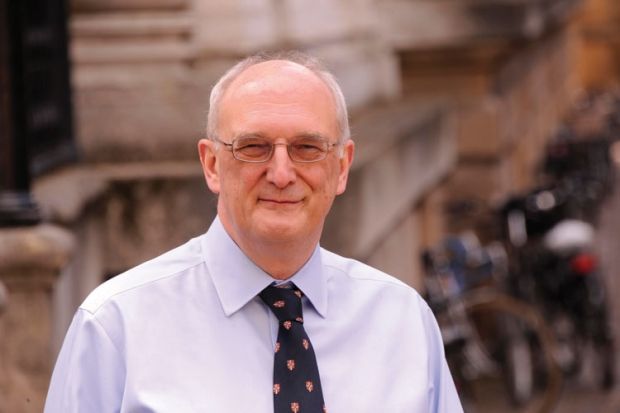Speaking at a Cambridge event, Sir Leszek Borysiewicz warned that this attitude was “positively detrimental” to higher education.
In remarks that appeared to respond to claims by the defence secretary, Michael Fallon, that some towns were being “swamped” by immigrants and that their residents felt “under siege”, he warned that government policies aimed at restricting immigration were likely to “damage British national interests”.
Speaking before writer Bonnie Greer, the chancellor of Kingston University, gave Cambridge’s annual race equality lecture, Sir Leszek said Britain had a long history of welcoming immigrants, particularly refugees. This continued with the arrival of newcomers from the Commonwealth after the Second World War to assist with rebuilding society, he added.
Since then, however, attitudes to immigration have “swung like a pendulum”, said Sir Leszek, who is the son of wartime Polish refugees.
“Attitudes have changed with perceptions of threat and danger, interspersed with the almost warlike language of ‘invasion’ and ‘being swamped’,” Sir Leszek was due to say, according to a written version of his remarks.
“As the v-c of a global university, I am encountering attitudes and policy decisions which seem ever more parochial and positively detrimental to the work of the higher education sector. More importantly, they are likely to damage British national interests and our global standing.”
Sir Leszek’s intervention follows a comment by Andrew Hamilton, vice-chancellor of the University of Oxford, that he was “baffled” by the UK’s “hostile” student visa system.
The number of students coming to the UK from India has declined particularly steeply, but the government has consistently rejected calls to remove students from the net migration target and has refused to restore the post-study work visa route which was closed in 2012.
Sir Leszek added: “The university’s diversity plays a key role in sustaining its academic excellence, whether this is race, gender, disability, sexual orientation or any other protected group.
“The university is committed to being a global centre of academic excellence. This means that we need to attract the best minds from wherever they are found from across the world.”
Ms Greer’s lecture was titled “Don’t Throw the Baby out with the Bathwater: Remembering the Benefits of Multi-Cultural Britain”.
Register to continue
Why register?
- Registration is free and only takes a moment
- Once registered, you can read 3 articles a month
- Sign up for our newsletter
Subscribe
Or subscribe for unlimited access to:
- Unlimited access to news, views, insights & reviews
- Digital editions
- Digital access to THE’s university and college rankings analysis
Already registered or a current subscriber? Login




